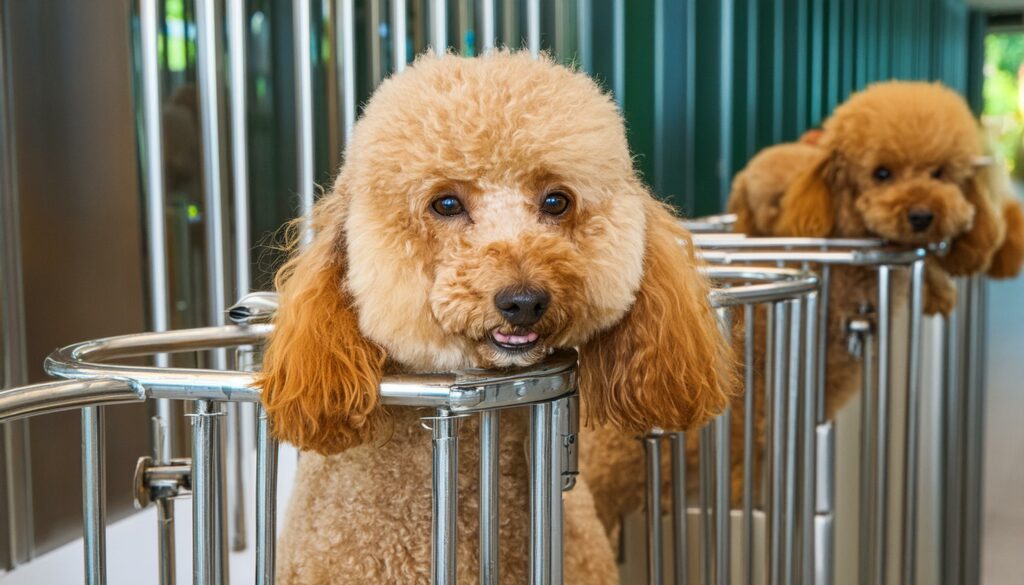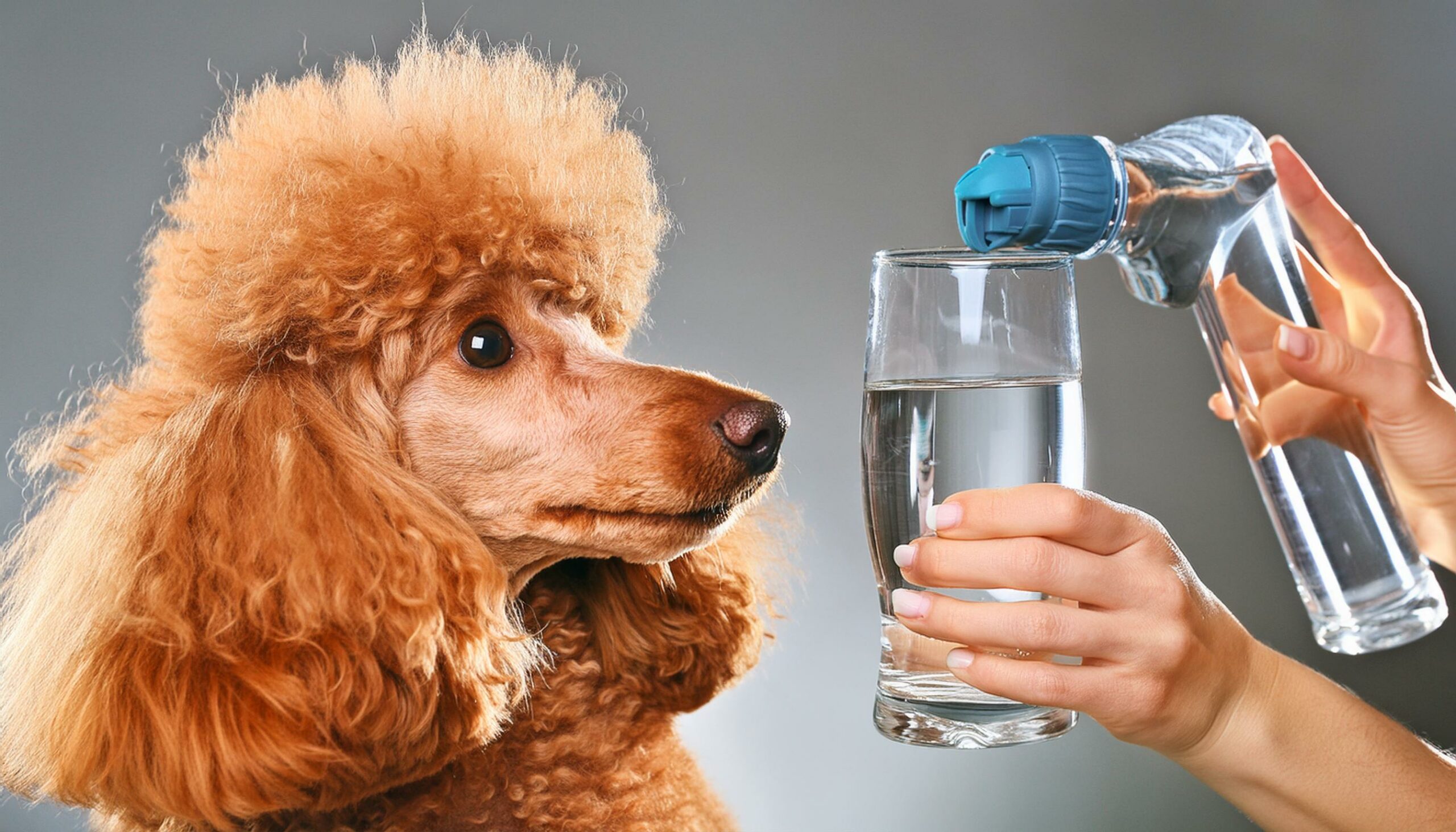Poodles, with their distinctive curly coats and intelligent eyes, are cherished pets for many households. Whether it’s the Toy, Miniature, or Standard variety, these dogs bring joy and companionship to their owners. However, beyond their playful antics and stylish appearance, ensuring their well-being, including proper hydration, is paramount.
Understanding the Importance of Hydration
Water is the essence of life, and this holds true for our canine companions as well. Hydration plays a crucial role in maintaining the health and vitality of Poodles. From aiding in digestion to regulating body temperature, water is involved in numerous bodily functions essential for overall well-being.
Factors Affecting Poodle’s Water Intake
Several factors influence how much water a Poodle should drink:
Breed Size and Activity Level: The size of the Poodle, whether it’s a Toy, Miniature, or Standard, along with its activity level, significantly impacts its water requirements. Larger Poodles and those with high energy levels may need more water to fuel their activities.
Environmental Conditions: External factors such as weather and climate also play a role in a Poodle’s hydration needs. Hot and humid weather can lead to increased water loss through panting, necessitating higher fluid intake to prevent dehydration.
Diet Composition: The type of diet your Poodle consumes can affect its water intake. Dry kibble diets may require more water consumption to aid in digestion compared to wet or raw food diets, which contain higher moisture content.
General Guidelines for Poodle Water Consumption
While precise water requirements vary based on individual factors, there are some general guidelines to follow:
Daily Water Requirements: On average, a Poodle should consume approximately one ounce of water per pound of body weight per day. However, this can fluctuate depending on factors such as temperature, activity level, and health status.
Signs of Dehydration: It’s crucial for pet owners to be vigilant for signs of dehydration in their Poodles. Symptoms may include dry gums, lethargy, sunken eyes, and loss of skin elasticity. If you suspect your Poodle is dehydrated, seek veterinary attention promptly.
Monitoring and Adjusting Water Intake
To ensure your Poodle remains adequately hydrated, consider the following:
Observing Thirst Cues: Poodles may not always drink water proactively, so it’s essential to monitor for thirst cues such as increased panting, licking, or seeking out water sources. Encourage regular water breaks, especially after physical activity.
Adjusting Water Intake During Exercise: During periods of increased activity or hot weather, your Poodle will likely require more water to replenish fluids lost through panting and sweating. Always have water readily available during outdoor adventures and monitor your dog’s hydration levels closely.
Potential Health Concerns Related to Hydration

While staying hydrated is crucial, there are potential risks associated with both under and overhydration:
Overhydration Risks: Excessive water intake, though rare, can lead to a condition known as water intoxication, where electrolyte imbalances occur, potentially causing seizures, coma, or even death. Avoid overzealous water consumption, especially during play or exercise.
Urinary Tract Health: Inadequate hydration can contribute to urinary tract issues such as urinary stones or infections in Poodles. Ensure your pet has access to fresh water at all times to promote urinary health and prevent concentrated urine.
Tips for Encouraging Proper Hydration
To promote optimal hydration in your Poodle, consider the following tips:
Providing Fresh Water: Ensure your Poodle has access to clean, fresh water throughout the day. Regularly clean and refill water bowls to prevent bacterial growth and maintain water quality.
Incorporating Moisture-Rich Foods: Supplement your Poodle’s diet with moisture-rich foods such as wet dog food, raw fruits, and vegetables. These can contribute to overall hydration and provide additional nutrients and antioxidants.
Conclusion
In conclusion, maintaining proper hydration is essential for the health and well-being of Poodles. By understanding their water needs and implementing appropriate measures, owners can help ensure their furry companions lead happy, healthy lives filled with vitality and vigor.
Unique FAQs:
How can I tell if my Poodle is dehydrated?
Signs of dehydration in Poodles include dry gums, sunken eyes, lethargy, and loss of skin elasticity. If you suspect dehydration, consult your veterinarian immediately.
Should I limit water intake before bedtime to prevent accidents?
While it’s advisable to monitor water intake before bedtime to minimize nighttime accidents, never restrict access to water as it can lead to dehydration.
Can Poodles drink tap water?
Tap water is generally safe for Poodles, but if your water source has contaminants or additives, consider using filtered or bottled water.
Are there any foods I should avoid to prevent dehydration in my Poodle?
Avoid feeding your Poodle salty snacks or foods high in sodium, as they can increase thirst and contribute to dehydration.
Is it normal for my Poodle to drink more water during hot weather?
Yes, it’s normal for Poodles to increase their water intake during hot weather to stay cool and hydrated.
